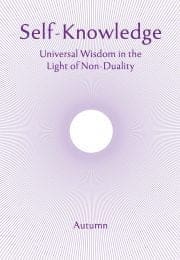Self-Realisation
There have been many theories about the fundamental nature of the drive in the human mind. Sigmund Freud spoke of it as a fountain-head of energy, primarily sexual, although becoming recanalized in many other forms. Adler, another of the founders of modern psychology, spoke of it as an urge to power or significance. But the Yoga of Self-Knowledge agrees with the philosopher F H Bradley in regarding the fundamental drive in the human mind as a drive for self-realisation. This certainly applies to the practice of non-duality, for the non-dual teachings are concerned with self-realisation, but in a wider sense it applies also to all the drives which we exhibit in our empirical life.
The philosopher, Ernest Hocking, puts forward a related view when he says that the whole of human history is the story of man making different images of himself and then trying to realise these images in practice. First he conceives some notion of what he is, and then tries to embody it in his empirical life. For instance, Western European society at one time was a realisation of the concept of man conceived in the medieval world of Catholic thinking. The individual was seen as a soul with a divinely ordained role in the social hierarchy under God’s earthly representatives, and a member of the Universal Church. This picture of man created and formed the medieval world and permeated all the patterns of life in that world. Similarly, the utilitarian idea of the greatest good of the greatest number, introduced in England by Jeremy Bentham and John Stuart Mill, helped to bring about the democratic reforms of society during the 19th century and created the Liberal idea of society, many features of which we are still enjoying. Yet there are still new pictures arising the whole time of what man is, and different people have different views. There is a Maoist view, a Marxist view and so on. There is a continual effort by man to realise one of these chosen pictures of himself in the form of the society he creates, and in this way the view is tested and its inadequacies become clear.
But apart from the broader canvas of history, the principle of self-realisation is at work in everyday life too for each one of us. ‘In our beginning is our end’, says T S Eliot, and we can learn a lot about ourselves by going back to our beginning.
Subscribe or enrol for free guest access to read all of this article and Self-Knowledge online.
Already subscribed or enrolled? Log in:


